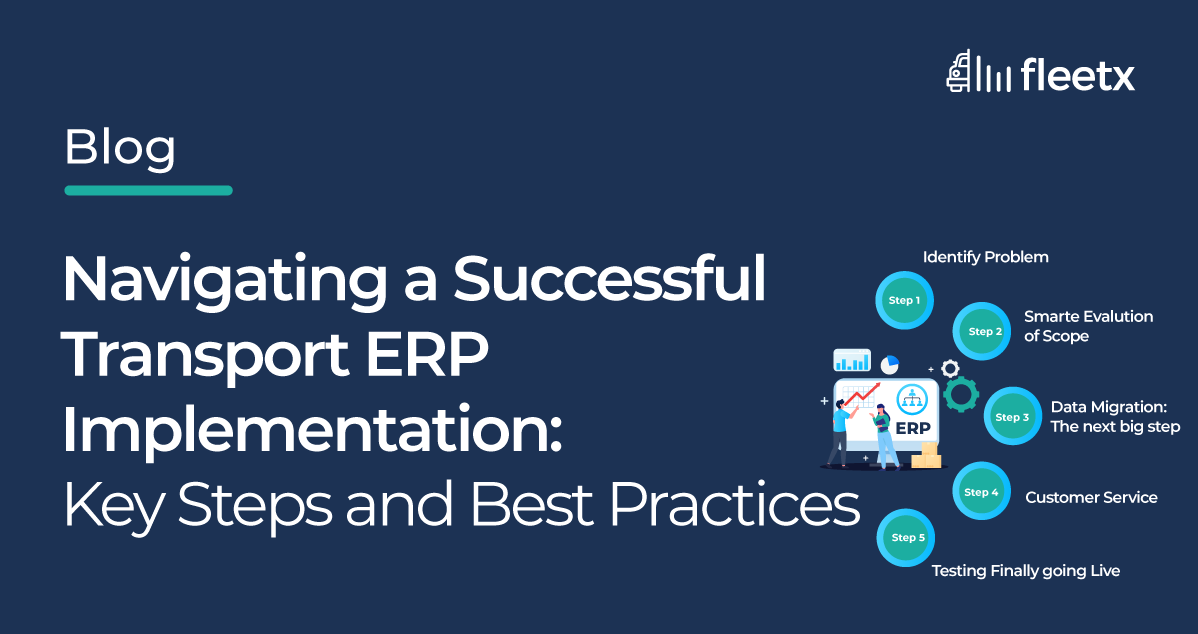Vehicle tracking technology is a powerful tool that empowers businesses to optimize operations, enhance productivity, and provide exceptional customer service. With the support of features like real-time visibility into fleet activities, accurate estimated time of arrival (ETA) tracking, route optimization, and improved safety measures, vehicle tracking technology can reduces costs and boost the overall efficiency of the organisation.
In this article, we will explore the transformative impact of vehicle tracking on service and satisfaction, and how it can empower managers across the Indian logistics landscape to streamline operations, boost productivity, and exceed customer expectations.
Impact on service and satisfaction
The transformative impact of vehicle tracking technology on service and satisfaction is undeniable. By providing real-time visibility, optimized routing, and proactive issue resolution, businesses can ensure timely deliveries, product and accurate information flow, and efficient resource allocation. This level of operational capacity leads to enhanced customer satisfaction, increased loyalty, and improved overall service quality. Vehicle tracking technology empowers businesses to deliver on their promises, exceed customer expectations, and build strong, lasting relationships.
Route Optimization:
Vehicle tracking solutions offer real-time visibility into the activities of the vehicle. This comprehensive overview empowers logistics companies to plan and optimize routes effectively, minimizing delivery time, reducing idle time, and avoiding traffic congestion. By analyzing traffic patterns, and real-time road conditions (as well as historical data on the same), businesses can identify the most efficient routes for their drivers. This minimizes travel time, reduces fuel consumption, and enhances overall operational efficiency.
Timely Deliveries and Improved Service Responsiveness:
With accurate and up-to-date information on vehicle location and estimated arrival times, businesses can ensure timely deliveries and improved service responsiveness. Real-time tracking enables effective coordination between businesses, drivers, fleet managers, and customers, minimizing delays and enabling proactive communication in the event of unforeseen circumstances. This level of service reliability enhances customer satisfaction and fosters long-term relationships.
Efficient Resource Allocation and Utilization:
Vehicle tracking solutions enable businesses to optimize resource allocation and utilization, resulting in cost savings and increased operational efficiency. By monitoring vehicle movement and performance, companies can identify underutilized assets, improve fleet utilization, and reduce unnecessary expenses. Effective resource management leads to improved service quality and faster response times, creating a competitive advantage in the logistics industry.
Enhanced Safety and Security:
Vehicle tracking systems offer robust safety and security features that benefit both the business, as well as its drivers. Geofencing and alert features help monitor vehicles and set virtual boundaries, ensuring compliance with pre-determined routes and better security measures. The emphasis on driver safety and adherence to traffic regulations further reduces accidents, ensuring the well-being of both drivers and the public.
In the unfortunate event of theft or unauthorized vehicle use, real-time tracking enables quick recovery and reduces financial losses. Additionally, the presence of visible tracking devices can act as a deterrent to potential thieves, as they are aware that the vehicle's location is being monitored. Fewer lost deliveries = happier customers!
Data-Driven Decision Making and Performance Analysis:
Vehicle tracking solutions generate a large mount of data on routes, fuel consumption, driver behavior, and vehicle maintenance. Analyzing this data allows logistics businesses to make informed decisions and optimize their operations. By identifying areas for improvement, such as route optimization or driver training needs, businesses can enhance operational efficiency, reduce costs, and optimize service quality.
Proactive Maintenance and Compliance:
Regular maintenance is crucial for the health of the vehicles and the safety of drivers. Vehicle tracking systems monitor key parameters such as mileage, engine health, and maintenance schedules, providing timely reminders for servicing and inspections. By proactively managing maintenance, businesses can prevent breakdowns, reduce downtime, and ensure compliance with relevant regulatory standards.
This approach to fleet management enhances service reliability, reduces costly repairs, and increases the longevity of vehicles. Furthermore, by ensuring your fleet is operating at its highest efficiency, you will be able to satisfy a larger customer base, and meet delivery deadlines. According to a study, companies that implemented vehicle tracking systems experienced a 28% reduction in average response times.
Improved Trust and Accountability:
Vehicle tracking fosters transparent communication between all the stakeholders in the organisation. Real-time updates on the estimated time of arrival (ETA), delays, or any unforeseen circumstances can be shared with customers promptly. This level of transparency builds trust and customer satisfaction by keeping them informed and enabling them to plan their operations accordingly. Additionally, vehicle tracking holds drivers accountable for their actions and ensures adherence to company policies and safe driving practices, further enhancing the reputation of the fleet business.
Customer Satisfaction and Retention:
The integration of vehicle tracking solutions into logistics operations leads to improved customer satisfaction and higher retention rates. According to a study conducted by Deloitte in 2019, companies that adopted vehicle tracking systems reported an average increase of 14% in customer satisfaction scores.
Reliable delivery tracking, accurate ETAs, and proactive communication foster trust and confidence in the logistics provider. Customers appreciate the transparency and efficiency of a well-managed fleet, leading to repeat business and positive word-of-mouth referrals. Satisfied customers are more likely to become brand advocates, promoting the logistics company's services to others, and helping it grow.
The way forward
The current impact of vehicle tracking solutions on the logistics industry is evident, and the future holds a lot of promise for positive changes. This technology is positioned to transform logistics operations to be more efficient, sustainable, and interconnected than ever before. With the integration of emerging technologies like predictive analytics, AI, and blockchain, vehicle tracking systems are sure to revolutionize the way businesses operate.
One possible avenue for innovation is combining vehicle tracking solutions with blockchain technology to enhance supply chain transparency and traceability. Blockchain-powered systems can provide immutable records of vehicle movement, shipment status, and other supply chain information. This transparency can help prevent fraud, ensure compliance, and foster trust among various stakeholders.
Vehicle tracking technology also has the potential to make the logistics industry more sustainable in the long-term; inefficient supply chains have large and avoidable carbon footprints due to mismanagement of resources. By optimizing routes, reducing idle time, and monitoring fuel consumption, businesses can operate more sustainably. This technology can also support the integration of electric vehicles into fleets, enabling efficient charging infrastructure management and maximizing energy usage.





